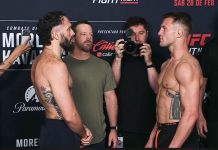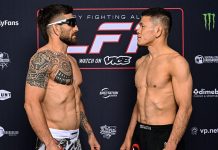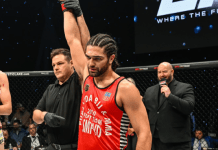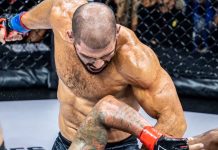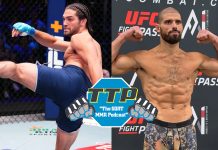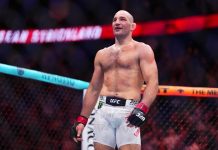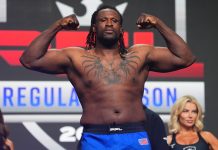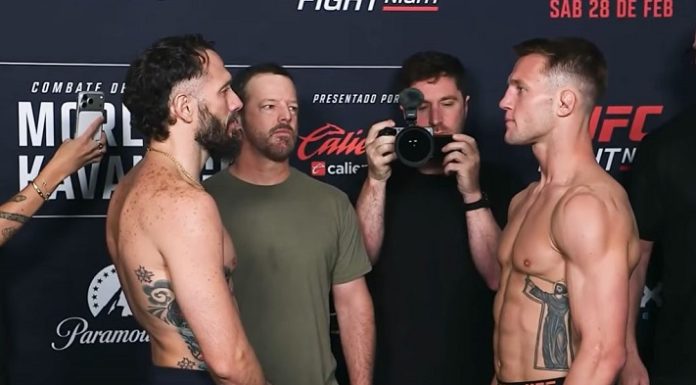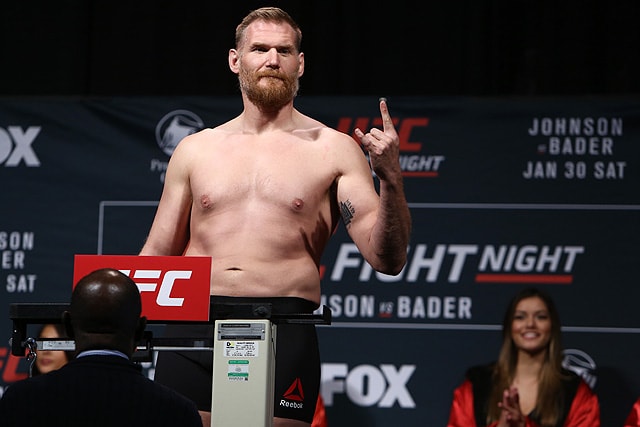
Following a couple of high profile cases, questions of fairness have begun to arise as it pertains to USADA’s enforcement of the UFC Anti-Doping Policy. Is it time for an overhaul?
It’s been over two years since the launch of the UFC’s Anti-Doping Policy, in conjunction with the U.S. Anti-Doping Agency. Over two years, with new fighters being suspended each and every month. That is not, on the surface, a bad thing. If a fighter is caught doping, the system worked, right? Yet there is room for improvement. There always is. And a couple of recent cases underline the fact that the UFC’s Anti-Doping policy needs an overhaul.
Not surprisingly, the case that brought this need to the forefront is that of Josh Barnett. In recent days, Barnett was cleared of any wrongdoing stemming from a 2016 drug test failure under the USADA regime. An independent arbitrator stated the heavyweight was “not a drug cheat” and praised the fighter for meticulously cataloging every supplement he used over the years, keeping samples from each.
Barnett isn’t exactly the poster boy for a clean sport. His history with performance enhancing drugs in MMA is a long one, which includes being stripped of the UFC heavyweight title after failing a drug test in 2002. Yet Barnett may be the poster boy for revamping the Anti-Doping Policy under USADA.
Note the phrasing. Changing USADA isn’t going to happen, they’re an independent body. But the UFC has contracted them, and within reason, they should be able to tailor the program to their own needs. So what’s the problem? The program is working, right? Drug cheats get caught and suspended, while innocent fighters like Barnett in his recent case are exonerated.
Well, not exactly. The USADA regime has in many ways become like the U.S. legal system, where the wealthy can afford to fight out their cases, and lesser known fighters wind up steamrolled. Worse, USADA has in some cases become less of a detached, independent body, and have taken up the mantle of “steroid police” — utilizing a guilty until innocent approach that does the program a disservice.
Let’s take a look at what Barnett had to say about his experience with USADA. Speaking to ESPN, the veteran heavyweight pointed out that USADA independently verified his drug test failure as a result of a tainted supplement way back in April 2017. Yet according to the fighter, USADA “seemed far more insistent on trying to be punitive than to recognize the facts and move on.”
To Barnett, it felt like the agency wasn’t willing to let the matter go. At one point, they’d offered an eighteen month suspension. And when that offer was rejected, the arbitration process played out — something that took almost the same amount of time.
Any way you look at it, USADA’s handling of the case took a year and a half off Barnett’s career. More, since he withdrew from their testing pool during the case, and must now wait six months before he can fight again, from the time he goes back in the pool.
Take a look at a different case, that of fellow heavyweight legend Mirko Cro-Cop. Cro-Cop disclosed use of HGH to treat an injured shoulder ahead of a November 2015 UFC fight with Anthony Hamilton. He was pulled from the fight and eventually suspended two years under USADA’s UFC Anti-Doping Policy. On the surface, that’s not entirely shocking, though it’s worth noting that to that point, Cro-Cop had never failed a drug test.
Nor did he in 2015, or since. In fact, Cro-Cop’s drug test came back clean. Whether the test simply missed the substance, or the amount was minuscule enough not to matter, rationally you would expect a disclosure to have impact on the penalty. This wasn’t a Jon Jones or Anderson Silva situation full of excuses. It was “I’m injured, I tried to treat that injury under a doctor’s care, but it ran afoul of the Anti-Doping Policy.” Still a violation, to be clear.
Yet in this case, USADA went from an independent body to playing cops and robbers, more or less. They offered Cro-Cop a reduced sentence of six months if he would turn over names of other fighters using banned substances. When he balked — either because he didn’t know any, or didn’t like the implication of being known as a snitch — USADA threw the book at him, giving him a full two year suspension.
The fighter, who opted to retire, was eventually granted his release from the UFC, and fought outside USADA’s jurisdiction in RIZIN FF, and now Bellator.
Yet the fact remains that the entire situation never should have happened. There’s a reason the legal system doesn’t allow the police to prosecute cases. The investigate branch does its work, and turns a case over to prosecutors. Why? Because the concept of “innocent until proven guilty” is often lost when your job is to catch criminals. And the same issue is clearly rising to the surface with USADA, who both investigate infractions and dole out punishment.
Yet, there’s an arbitration process. However, when going through that process is so monetarily prohibitive that only the top tier of fighters can afford it, you create an unjust system that is essentially class based. It mirrors the court system in the U.S. and elsewhere. If you’re poor, forget it. Plead out, take the best deal you can get, and hope to fight again in a year or two.
Worse, the pace of the system moves so slow that, as with Barnett, you might as well have taken the deal and saved the money you spent on lawyers. An amount that wasn’t exactly small, though in Barnett’s case, he didn’t want to give a specific amount.
USADA’s Director of Legal Affairs, Onye Ikwuakor, told ESPN in regards to the Barnett case that “it was a surprising outcome, but I think it demonstrates athletes have an opportunity to legitimately put their case forward. It’s not just ‘What USADA says, goes.” The problem is that the end result is the same.
It’s important to note that the lack of a union or fighter’s association once again is a detriment to the athletes in this case. With no collective bargaining power, they had no say in the UFC Anti-Doping Policy when it took effect, in conjunction with USADA, on July 1, 2015. That’s something not seen in other professional sports, where drug testing has become a hot topic during collective bargaining.
In any case, Barnett and Cro-Cop are just two examples. There are others — from tainted meat to tainted supplements. And then there are legitimate drug cheats. Those are no doubt the bigger issue. Yet the old adage popularized by William Blackstone, an English Jurist in the 1700s, comes to mind: “It is better that ten guilty persons escape than that one innocent suffer.”
The UFC Anti-Doping Policy and USADA (for as long as they run it) are key to a clean promotion. There’s no argument there (those rallying for a free-for-all, give your head a shake). Yet there are plenty of ways to improve the system, and with the third anniversary of the program swiftly approaching, now is as good a time as ever.

